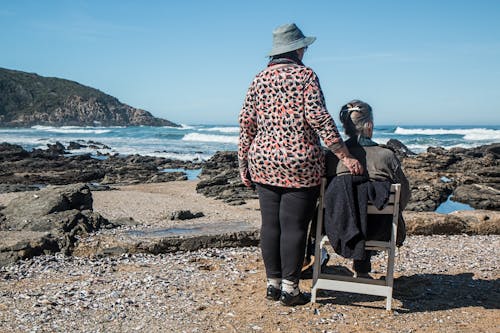 |
Image source: Pixabay.com
|
 |
Image source: Pexels.com
|
One must have a list of emergency contacts such as one's immediate family, neighbors, and healthcare providers that can easily be contacted in times of emergencies. It would also be useful to have out-of-town contacts in case something happens when the person is away from their home. This list of contacts should be easy to find. For those living alone or in a senior care home, it might be helpful to coordinate with other staff.
Place mobility aids, visual aids, and essential medical equipment in an accessible place
Hearing aids, walkers, wheelchairs, canes, eyeglasses, and other essential equipment should be within a person's reach. When the situation calls for evacuation, older adults and their caregivers will not have difficulties finding these necessities. Having these assistive tools will allow them to move efficiently.
Prepare an emergency kit
Hygiene items, flashlight, radio, cell phones, food and water, first aid kit, change of clothes, undergarments, blankets, copies of essential documents, and medicine should be in a person's emergency kit. When one needs to leave their senior home or residence, having such a kit will ensure that they'll have their necessities even for a few days.
Captain Martin Lloyd Sanders, Ph.D., CSP, is an officer in the Commissioned Corps of the U.S. Public Health Service and has rendered over 10 years of service in occupational safety and health. For more articles like this, check out this page.
Disclaimer: This site was prepared by Martin L. Sanders in his personal capacity. The opinions expressed are the author's own and do not reflect the views of the USPHS, the Department of Health and Human Services, or the United States government.